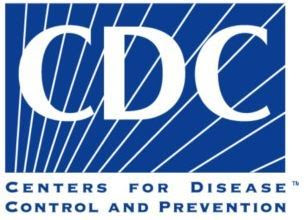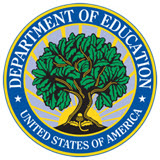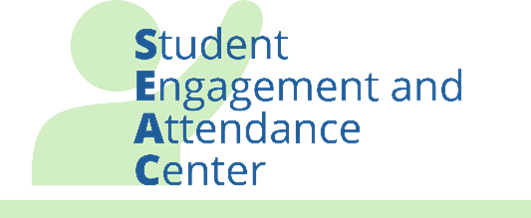
March 2021, Volume 2, Issue 5
Office of Elementary and Secondary Education (OESE)
Office of State Grant and Program Support Newsletter
 |
|
Don't miss the grant competition announcements from the Office of Indian Education and Rural, Insular and Native Achievement Programs.
|

From the Deputy Assistant Secretary
Letter From Ruth Ryder, Deputy Assistant Secretary for the Office of State Grant and Program Support

Dear Partners and Stakeholders:
Happy March everyone! I would like to thank all who completed our OSGPS Newsletter Survey. We were able to glean some important information that helps us improve how we communicate with you. Most respondents like the newsletter and didn’t request major changes. Many respondents requested more specific information from the offices that fund their grant work. We are investigating some structural changes to the newsletter that you will see in the issues to come. Please let us know if you have additional feedback by emailing OESENewsletter@ed.gov, and please continue to share the newsletter sign up information with other potential subscribers! You can also find archived issues here.
We recently received the results of the annual Grantee Satisfaction Survey, an annual survey that has been conducted since 2006. Program directors have the opportunity to rate us on a number of items, including technical assistance, online resources, documents, and direct support to grantees. I’m pleased to say that we had a higher participation rate and higher ratings than ever this year! Of particular note was the recognition of our improved “online resources,” our “professionalism,” and our “responsiveness to your questions.” Grantees also noted a high rate of customer satisfaction and trust. We do have opportunities for improvement, particularly in sharing how we use grantee data. Thanks to all of you who took the time to complete the survey. Be assured that we will use this information to improve our customer service moving forward!
Additional big news in OESE is the arrival of Ian Rosenblum, who has joined OESE as the Deputy Assistant Secretary of Policy and Programs and currently is delegated the authority of Acting Assistant Secretary of OESE. The values that guide his approach to our work include the urgency of educational equity and “building back better.” We look forward to supporting Ian and the new administration as we continue our commitment to our stakeholders and grantees.
Thanks, as always, for all you are doing on behalf of our most vulnerable students!
Ruth Ryder
|

Featured TA Center: The National Center on Improving Literacy (NCIL)

The National Center on Improving Literacy (NCIL) is a partnership among literacy experts, university researchers, and technical assistance providers, with funding from the Department of Education. Its mission is to increase access to, and use of, evidence-based approaches to screen, identify, and teach students with literacy-related disabilities, including dyslexia. The five priorities of the Center are as follows:
- Identify or develop free or low-cost evidence-based assessment tools for identifying students at risk of not attaining full literacy skills due to a disability.
- Identify evidence-based literacy instruction, strategies, and accommodations, including assistive technology, designed to meet the specific needs of such students.
- Provide families of such students with information and collaborate with parent training centers.
- Identify or develop evidence-based professional development for teachers, paraprofessionals, principals, other school leaders, and specialized instructional support personnel.
- Disseminate the products of the comprehensive center to regionally diverse state educational agencies (SEAs), local educational agencies (LEAs), regional educational agencies, and schools.
The Center has developed several implementation toolkits, literacy skill checklists, webpages, and resources that have been well-received by the field. Examples include:
- The Curriculum-Based Measurement (CBM) at Home webpage guides families on how to assess their child’s reading skills in grades K-3 to get an overall picture of his or her current reading skills and potential risk for reading disabilities. The page also includes home-based activities that are based on research and can fit into families’ daily routines.
- This literacy success toolkit helps families and schools work together to support children’s literacy success both in and out of school
- This literacy skill checklist is designed to help guide parents, caregivers, and professionals in recording the presence of important reading, writing, and language skills in kindergarten through 2nd grade.
- This remote literacy learning toolkit helps schools and families join efforts to support children’s literacy growth in remote or blended learning environments.
- The Kid Zone! is a place where students and families can participate as children build literacy skills in a fun and interactive way.
|

Meet Department Staff Member
Learn more about Kristen Rhoads, Ph.D., an Education Program Specialist for the NCIL with the Office of Special Education Programs.
How long have you been at the Department?
What do you most enjoy about working at the Department?
- As a researcher and parent of a child with Down syndrome, I know how important it is that children receive evidence-based instruction, intervention, and services. My work at the Department allows me to translate my professional knowledge and personal experience to help children receive the instruction and supports they need to accomplish their academic and life goals.
What is one thing you’d like to see happen for this TA Center in the next year?
- I want the Center to continue its focus on use of evidence-based literacy instruction and assessments for students with or at risk for reading disabilities, including dyslexia, in the variety of school settings being experienced by students and their families this year. Use of evidence-based practices should help lessen the loss of learning due to COVID-related school closures. This year, the Department is also forecasted to recompete the Center to continue promoting and providing technical assistance to states, districts, schools, teachers, and families on evidence-based literacy instruction and assessment for students with or at risk for disabilities, including dyslexia.
|

Centers for Disease Control and Prevention Updates

CDC Guidance for Child Care, Schools, and Youth Programs
The Centers for Disease Control and Prevention (CDC) maintains a webpage that provides information for child care, schools, and youth programs to plan, prepare, and respond to COVID-19. Topics include operating schools during COVID-19, decision-making indicators for reopening, testing and contact tracing, and returning to in-person learning, among others.
The CDC recently updated their Resources for Teachers and Staff guidance. The information and checklist, Teachers and Staff Resuming In-Person Learning, for teachers, substitute teachers, and paraprofessionals, assists with identifying ways to protect the health of teachers as well as the health of students in classrooms. The quick guide for teachers, How Do I Set Up My Classroom?, suggests ways to modify the layout of classrooms in a way that promotes healthy behaviors, environments, and operations that reduce the risk of COVID-19.
|

Technical Assistance Resources: Focus on Literacy

Evidence-based Literacy Instruction within Remote and Blended/Hybrid Learning Environments
This professional development package by the National Comprehensive Center shares information from an expert literacy roundtable event that showcased evidence-based guidance to state policymakers and educators about best practices for delivering literacy instruction in remote and blended/hybrid learning environments. The professional development package includes short videos, researchers’ answers to questions posed by participants, and links to training resources.
|

Literacy Leads, Setting Follows: Advice for Grades 1-3 Literacy Leaders in Disrupted Environments
This guide by the National Comprehensive Center is the first in a series of online guides that provide advice for literacy leadership teams. In addition to information about instructional priorities, the guide includes suggestions for planning efficient use of instructional time, relieving the burden on teachers, centralizing support for parents, and engaging community resources. Links to evidence-based resources are provided throughout the text.
|

Innovative Approaches to Literacy Program Competition in 2021
The Innovative Approaches to Literacy (IAL) program supports high-quality programs designed to develop and improve literacy skills for children and students from birth through 12th grade in high-need LEAs and schools. The Department intends to promote innovative literacy programs that support the development of literacy skills in low-income communities, including programs that:
- develop and enhance effective school library programs, which may include providing professional development for school librarians, books, and up-to-date materials to high-need schools;
- provide early literacy services, including pediatric literacy programs through which, during well-child visits, medical providers trained in research-based methods of early language and literacy promotion provide developmentally appropriate books and recommendations to parents to encourage them to read aloud to their children starting in infancy; and
- provide high-quality books on a regular basis to children and adolescents from low-income communities to increase reading motivation, performance, and frequency.
In 2018 and 2019, the Department awarded IAL grants to 44 schools districts, representing 17 states. The next IAL grant competition will be held in 2021.
|

Student Engagement and Attendance Support for States
To support states as they navigate the challenges presented by the COVID-19 pandemic, the Student Engagement and Attendance Center recently launched the Attendance Peer-to-Peer (P2P) Network. The Network provides eight states and selected partner districts or regional education agencies with technical assistance related to attendance data and attendance supports during the 2020-21 school year. The cohort meets virtually approximately twice per month to share promising practices, focusing on measuring, collecting, and reporting attendance data, and on providing supports to address attendance challenges.
If you are interested in participating in the P2P Network, please contact Dana Chambers (dchambers@insightpolicyresearch.com) or Jenny Scala (jscala@air.org).
|

Out-of-School Time Career Pathway Grant Program
On Jan. 4, the Department awarded four grants under the new 21st Century Community Learning Centers’ Out-of-School Time Career Pathway discretionary grant program. This program makes grants to SEAs that, in partnership with eligible entities, will provide students with expanded options to participate in a career pathway program that leads to a recognized postsecondary credential, such as an industry-recognized certification or a certificate of completion of an apprenticeship in an in-demand industry sector or occupation. The new grantees for this program are the:
- New Hampshire Department of Education, partnering with the New Hampshire Learning Initiative and four school districts;
- Tennessee Department of Education, partnering with the Nashville Tech Council and five school districts;
- Utah State Board of Education, partnering with Career and Technical Education, the Utah Afterschool Network, Amazon Web Services, and four county school districts; and
- Iowa Department of Education, partnering with the Boys and Girls Club of Central Iowa and two school districts.
The approved funding for the four grantees for the first year of their five-year grants totals $2,133,357.00.
|

What's New From the Institute of Education Sciences


Regional Education Laboratory Tool: A Second Grade Teacher’s Guide to Supporting Family Involvement in Foundational Reading Skills
REL Southeast has developed a Teacher’s Guide to supplement the What Works Clearinghouse (WWC) practice guide, Foundational Skills to Support Reading for Understanding in Kindergarten Through 3rd Grade.
The Teacher’s Guide complements and extends the practice guide by providing step-by-step guidance for second grade teachers to support families in practicing foundational reading skills at home. The Teacher’s Guide includes:
- Recommendation reminders that provide a snapshot of each recommendation and how-to steps from the WWC guide
- Teacher scaffolds that model the language teachers can use with families to describe a specific skill, why it is important in learning to read, and how to support that skill
- Family activities that contain evidence-based literacy activities with easy-to-follow plans and materials that teachers model and share with families
- Family literacy videos that show families engaging their child in activities related to the skills teachers modeled during family literacy nights or at parent-teacher conferences
Click here to access the guide. You may explore a range of additional literacy resources by visiting the IES literacy page.
|

Impact Aid News

Impact Aid 7002 and 7003 FY 2022 Late Application Deadline Reminder
Does your district apply for Impact Aid Funding?
The application deadline for FY 2022 Impact Aid 7002 (payments for federal property) and 7003 (payments for federally connected children) was Feb. 1. Over 1,200 LEAs submitted applications.
If your district normally applies for Impact Aid but missed the deadline, you may apply by April 2 for a late submission. Late applications completed between Feb. 2 and April 2 incur a 10% penalty. Applications submitted after April 2 (60 days after the deadline) will be ineligible for funding for FY 2022.
Visit our portal at https://impactaid.ed.gov/ for more information about how to apply.
Need Help? You can submit questions from inside the application system. You may also phone our Help Desk at (202) 260-3858 or send an email to Impact.Aid@ed.gov.
|

Impact Aid March Webinars
The Impact Aid program offers technical assistance webinars of various topics throughout the program year. During the month of March, the program will focus on monitoring activities.
If you submitted an Impact Aid application and want to learn how to prepare for a field review, we recommend you join us for an upcoming session of “How to Survive a Field Review” to learn about the process and to ask questions.
If your district claims children who live on Indian Land, you may be interested in our sessions on “Indian Policies and Procedures (IPPs) Implementation” to learn more about regulatory requirements, best practices, and tools to assist your district during implementation and monitoring.
Visit our application portal at https://impactaid.ed.gov/news/ to find the most current list of webinars. You will find the Microsoft Teams meeting link and call-in number for each session on this page. You may join via computer, or you may dial in by phone. If you cannot attend a session, you can visit our resources page at
![]()
About the Author
Ruth Ryder is the Deputy Assistant Secretary for the Office of Office of State Grant and Program Support in the Office of Elementary and Secondary Education (OESE) at the U.S. Department of Education. In this role, Ms. Ryder oversees a broad range of management, policy, and program functions related to formula and discretionary grant programs under the Elementary and Secondary Education Act, as amended by the Every Student Succeeds Act (ESEA). Ms. Ryder was previously the deputy director of the Office of Special Education Programs in the Office of Special Education and Rehabilitative Services, which she joined in 1988. Prior to joining the Department, Ms. Ryder was a program administrator in a Washington state school district. There she had responsibility for the Elementary and Secondary Education Act Title 1 and Title II programs, state-remediation, gifted education, outcome-based education, and state- and district-wide testing programs. Ms. Ryder has a bachelor’s degree in psychology and elementary education and a master’s degree in special education.
Read next
Policy
Letter from Principal Deputy Assistant Secretary Schott re: ARP Administrative Funds Waivers
USED & White House
U.S. Department of Education Releases Final Title IX Regulations, Providing Vital Protections Against Sex Discrimination
USED & White House
OMB Announces New Final UGG
| |

